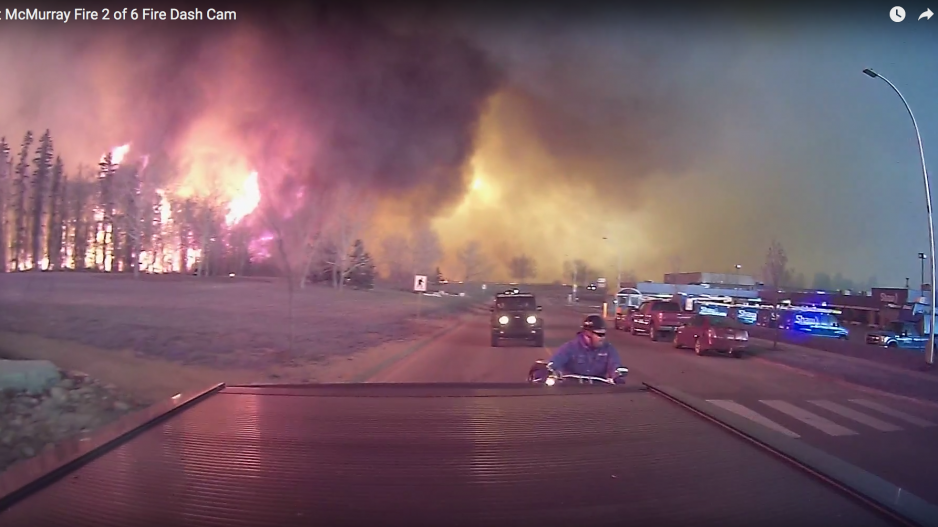The fraught situation in Fort McMurray continues. Today a convoy of 1,500 vehicles, escorted by police, left areas north of the city as wildfires continued to rage in the heart of Alberta’s oil patch. The latest photos out of Fort McMurray show a charred ghost town.
Edge-of-your-seat thrillers have nothing on the dash cam footage captured by Michel Chamberland, a Syncrude employee, as he fled Fort McMurray on May 5. And my new worst nightmare: fleeing a wildfire while heavily pregnant and going into labour en route to safety.
The fires haven’t just displaced an entire town of 80,000 residents, they’ve had an economic impact. Crude oil prices continued to rise today as oil sands producers were forced to halt production in northeastern Alberta.
Fort McMurray residents will have to rebuild their city in the midst of a historic oil price shock and as the place of fossil fuels’ in the global energy mix shifts. Will they need extra help?
Meanwhile, B.C.’s own oil and gas patch, which has been struggling with low natural gas prices, is also threatened by wildfires: several communities along the Alaska Highway are currently under evacuation alerts. Tinder-dry conditions in northern forests are creating the conditions for an active fire season.
As for that temptation to triangulate the oil sands to climate change to catastrophic wildfire: “you don’t have to be an a------ about it.” On the other hand, maybe this is exactly the right time to talk about climate change.
In other news:
For the price of two run-down apartment buildings in Vancouver’s West End you could buy a tennis-ball sized diamond.
For the first time ever, British Columbia has Canada’s lowest unemployment rate, at 5.8%. It’s like two-years-ago-Alberta. But that doesn’t mean B.C. has been immune from the downturn in oil and gas and mining: the unemployment rate in the northeastern Peace region is currently 9.7%.
The town of Powell River and its school district have big hopes for an agreement with a Chinese private school chain to bring thousands of students to the area. “Powell River is also hoping to become the site of a collection of satellite campuses for major Chinese universities,” reports Frances Bula in the Globe and Mail (or read her blog post here with a few extra details.)




